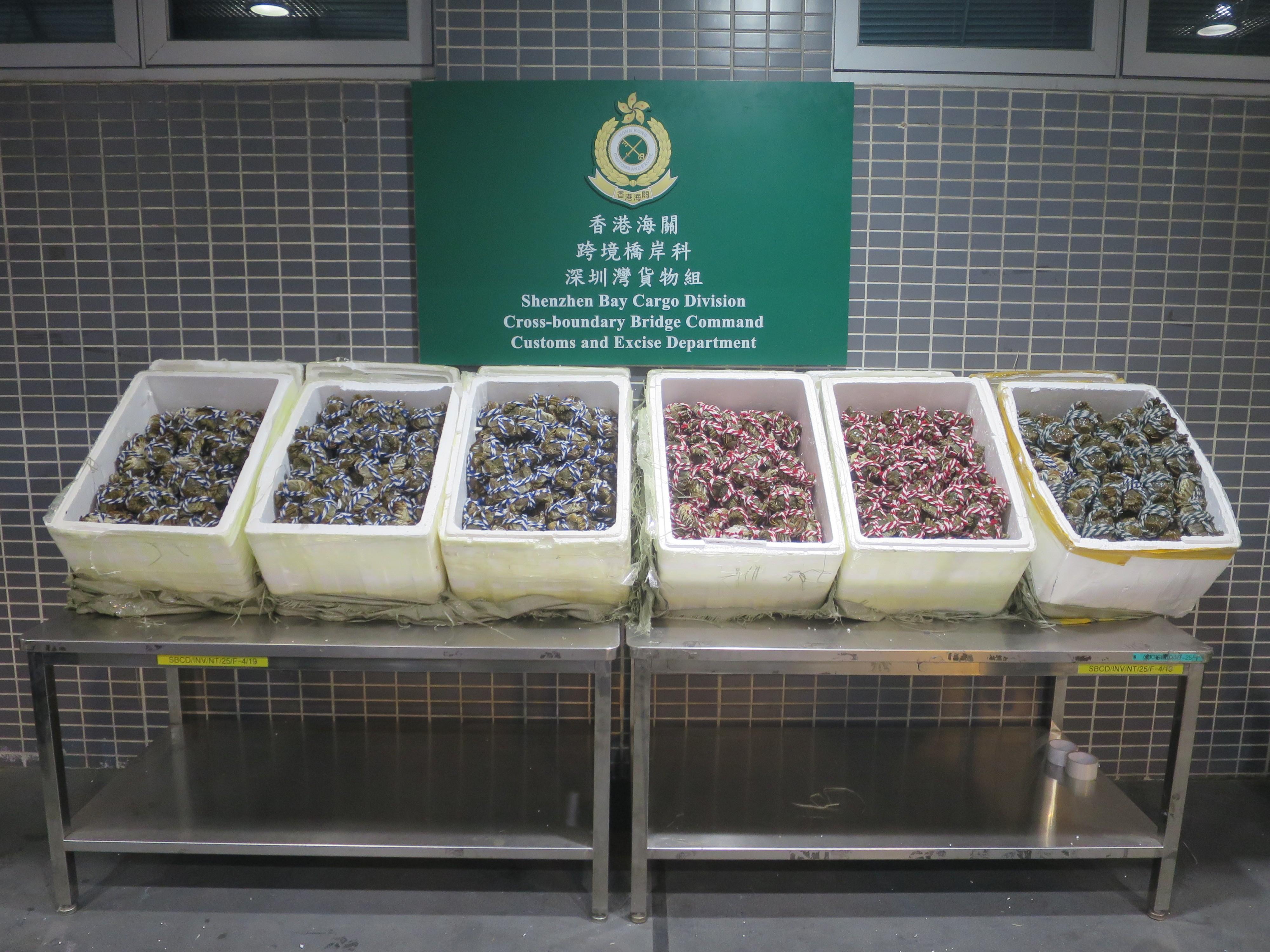The Hong Kong Customs and Excise Department (C&ED) and the Centre for Food Safety (CFS) of the Food and Environmental Hygiene Department (FEHD) mounted joint operations at the Shenzhen Bay Control Point yesterday (October 18) and seized a total of 826 suspected smuggled hairy crabs with a total estimated market value of about $49,000.
Based on risk assessment, Customs officers yesterday intercepted an incoming goods vehicle declared as carrying a batch of cross-boundary merchandise including food items at the Shenzhen Bay Control Point. Upon inspection, the batch of suspected smuggled hairy crabs was found concealed inside the cargo compartment of the vehicle. The seized hairy crabs did not come with health certificates issued by the relevant authorities of the exporting economies, and failed to comply with the requirements of the Shell Fish (Hairy Crab) Permit. A male driver suspected to be connected with the case and the seized hairy crabs were handed over to the FEHD for follow-up investigation.
To combat illegal importing of hairy crabs at sea, land and air control points, the C&ED and the CFS have commenced a three-month joint operation this September 1. As of yesterday, the C&ED has referred 35 cases to the CFS for follow-up action. Among which, 17 cases, involving about 7 800 hairy crabs with a total weight of about 1 400 kilograms, were not covered by any health certificates.
Customs reminds members of the public that smuggling is a serious offence. Under the Import and Export Ordinance, any person found guilty of importing or exporting unmanifested cargo is liable to a maximum fine of $2 million and imprisonment for seven years.
Customs also reminds the trade not to import or put on sale hairy crabs with an unknown origin, and consumers should make purchases at reputable shops with the Shell Fish (Hairy Crab) Permit or relevant written permission granted by the FEHD.
According to the Imported Game, Meat, Poultry and Eggs Regulations, any person who imports game, meat, poultry or eggs should produce a health certificate issued by an issuing entity from the place of origin or obtain prior permission in writing from the FEHD. Offenders are liable on conviction to a fine of $50,000 and six months’ imprisonment.
According to the Public Health and Municipal Services Ordinance, all food available for sale in Hong Kong, locally produced or imported, should be fit for human consumption. An offender is subject to a maximum fine of $50,000 and imprisonment for six months upon conviction. Moreover, under the Food Safety Ordinance, any person who, without reasonable excuse, does not register but carries on a food importation or distribution business commits an offence and is liable to a maximum fine of $50,000 and imprisonment for six months.
Customs and the CFS will keep up close co-operation and intelligence exchanges, while joint operations will be conducted to combat illegal food import activities.
Members of the public may report any suspected smuggling activities to Customs’ 24-hour hotline 2545 6182 or its dedicated crime-reporting email account (crimereport@customs.gov.hk) or online form (eform.cefs.gov.hk/form/ced002).




